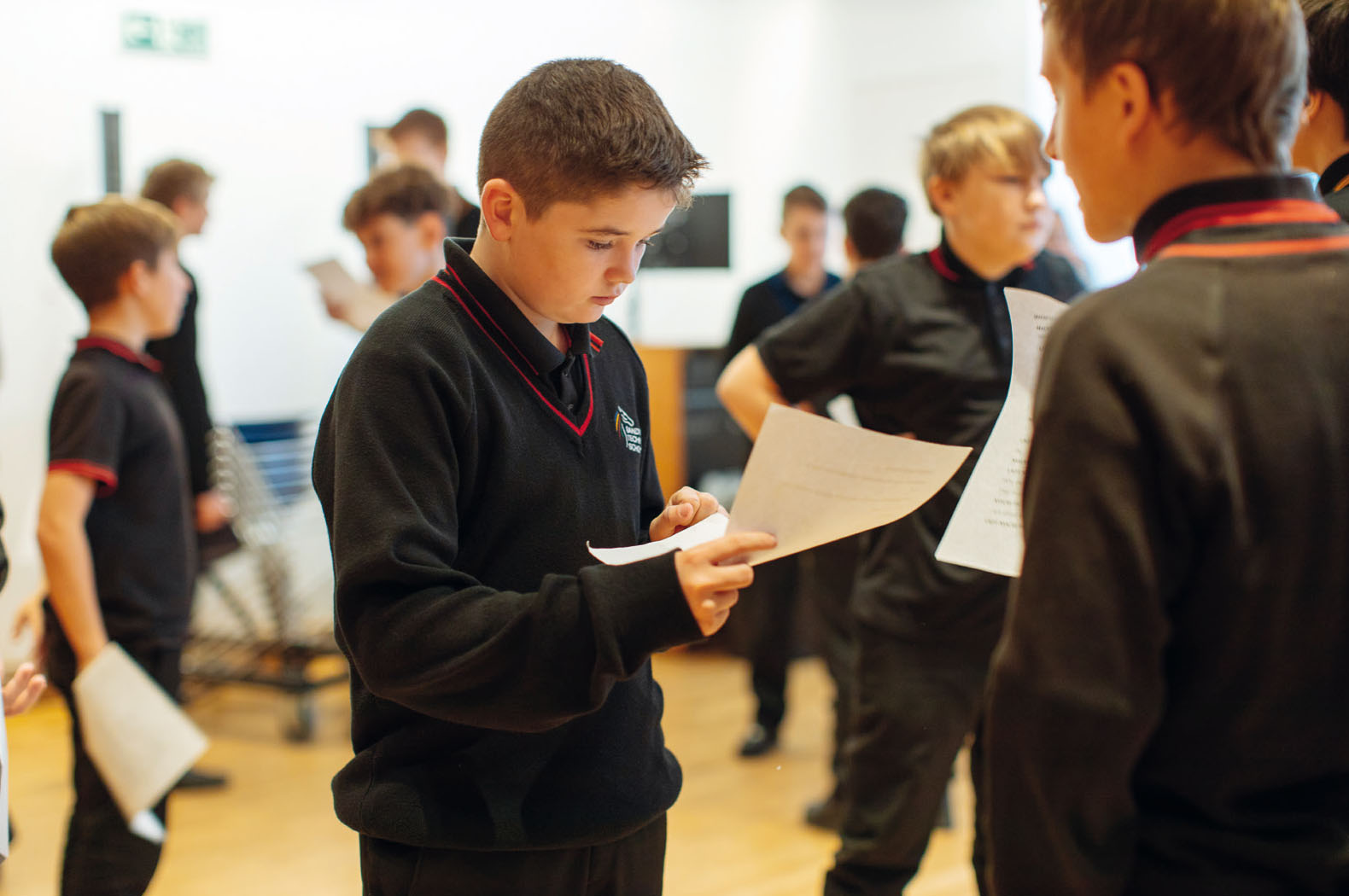
Playing Shakespeare with Deutsche Bank is one of my favourite projects as an actor and Globe education practitioner. As well as performing in two Playing Shakespeare productions in the past (Macbeth in 2010 and Much Ado About Nothing in 2018), I've delivered dozens of Playing Shakespeare workshops in schools.
The Playing Shakespeare with Deutsche Bank project is a 90-minute production of a Shakespeare play on the Globe stage, aimed at secondary school students. Deutsche Bank has sponsored the project since it began in 2007, and around 20,000 students are given free tickets every year.
The Globe is already an exciting space, but imagine it filled with 1500 teenagers, a lot of whom haven't been to the theatre before. I feel like it's the closest you can come to being at the Globe in Shakespeare's time – it feels like a gig venue rather than a theatre. The students are loud and very responsive. If characters kiss, they go wild. If a fight breaks out on stage, they roar. And if you lose them, they'll tell you about it by completely disengaging and talking to their mates. They are in no way polite. It's the most honest, exciting audience you can have in a theatre, and I love that. It's exhilarating.
So far this year, I've been into three schools to deliver workshops around this year's Playing Shakespeare production of Macbeth – in London, Lincolnshire and Birmingham. Macbeth is a gift of a play to engage students with because it's essentially a horror story, a lot of students like the story already, and it's gruesome and exciting.
Exploring Macbeth
I always start by talking about the Globe, often passing a couple of pictures around the circle, and we talk about how the space looks old and different to other theatres. I ask students to try to imagine that during the workshop instead of being in this rehearsal room, we're actors on the Globe stage.
We then do a quick energy warm up that moves us into a fast walk around the room. Because the Globe is a round theatre, we pretend the room is round with the audience on all sides. I ask them to work as an ensemble to make sure the stage is filled with actors, so the audience has a good view. This works well because from the beginning the students are engaging with the space and thinking about the actor-audience relationship.
After warming up, we start to look at the themes of Macbeth. I divide the class into groups, give each group a different theme from the play and have them create a freeze frame to show their theme. We take it in turns to watch the different freeze frames and guess what each theme is.
The students love this. They're often really imaginative and come up with some wonderful ideas. I gave one group the theme of ambition recently, and they created a timeline, each student representing Macbeth at different parts of the story, showing his ambition becoming greater and greater as the line went on.
This exercise is a great way to talk about the themes of the play because as well as discussing them, the students begin to embody them. We always have a discussion about which is the stand-out theme, and this usually sparks an interesting (and sometimes heated) debate, which I love. The students really start to take ownership of the story. The theme they seem to engage with most is corruption, and they often start talking about corrupt politicians in the world today.

c. CESARE DE GIGLIO
Students taking part in a Globe Education workshop
Unpicking key scenes
After we've explored the themes, I then split the students into pairs, and we look at one scene from the play in greater detail. I usually focus on Act 1 Scene 7 between Macbeth and Lady Macbeth, but it depends on the group. The teachers may also have requested a specific scene.
Once we've read the scene together and unpicked any tricky words or phrases, I get the students to complete various exercises on the scene to help the story, characters and text come alive. We think about objectives and tactics, language and key words, use of space, and the actor-audience relationship. I treat it very much like a rehearsal and slowly feed ideas in, so that by the end of the workshop the students are owning the scene – they understand it, have spoken the text several times, have made character choices and have an opinion on the characters and their decisions. In the discussion at the end, students often start to debate who is responsible for the downfall of Macbeth.
There's no doubt that Shakespeare can seem intimidating to students at first glance but helping them to own and embody the themes and spirit of the text helps to bring one of the best-loved horror stories to thrilling, gruesome life.
